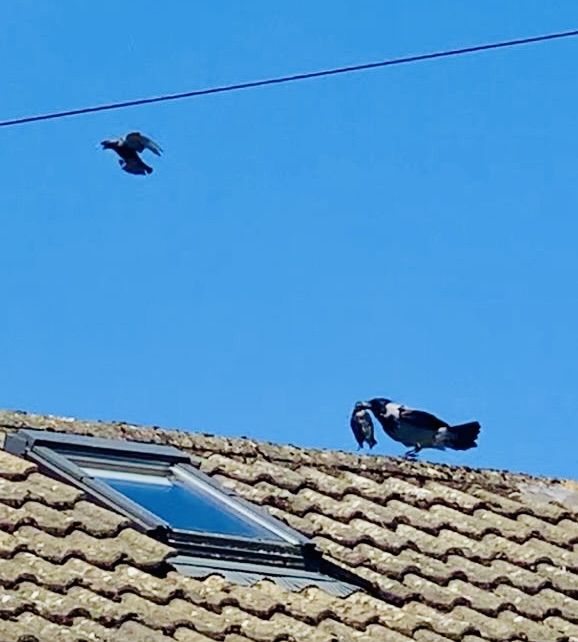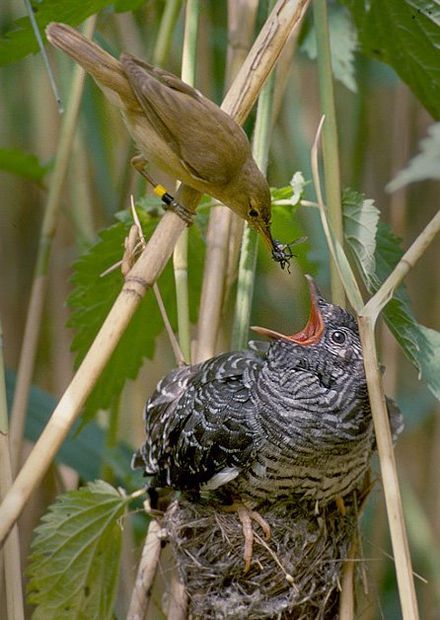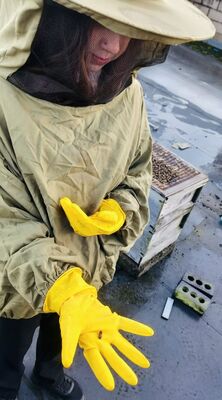THERE'S nothing like the natural world to make you feel ancient. A hooded crow takes a starling chick
Because when Dúlra talks about how things used to be, he feels like an oul’ lad reminiscing about the days of yore.
But it was only 40 years ago. Looking back, the Belfast hills and indeed in the city itself were like a parallel universe to today’s offering, home to many creatures that no longer exist.
In the same way we have the Neolithic Age and all those other ages, we were still at that time, it appears to Dúlra, living in the last days of Ireland’s Nature Age.
You’d open your door in Andersonstown on a summer’s day and the corncrake’s call would drift down from the mountain. Yes, this rarest of rare birds was breeding in those wee fields on the city side of the Springfield Road.
We had reed buntings and yellowhammers in our back garden – two birds that today you’d have to travel some distance from Belfast to see. And there was another amazing call that drifted on the wind from the mountain every summer, one that carried even further than the corncrake’s.
And one which struck terror into the hearts of every other bird that heard it: the cuckoo, cuach in Irish.
This week it was again reported to be calling on the lower slopes of Divis, which is brilliant news for everyone except the birds who will soon be rearing a baby cuckoo believing it to be a giant version of themselves.

The incongruous images of the tiny adults feeding a massive chick have to be one of the tragically comical events in nature. The baby cuckoos have so much growing to do that they follow their adopted parents demanding food for up to a month – much longer than the species’ own chicks would have done. But the loving parents’ devotion knows no bounds – it might be an ‘ugly duckling’, but it’s their ugly duckling. Or so they think.
That cuckoo on Divis (well, the female partner of the calling male) will be weaving her cruel web across the hillside, finding an average of 25 nests to lay an egg in. Meadow pipits – which nest among grass all over the hill – are their favourite victim.
It may not be ethically correct in our terms, but it’s a stroke of genius for the cuckoo. Raising a family was never so easy – it’s a bit like royals who offload their kids to nannies and then send them off to boarding school. No wonder the cuckoos lay 25 eggs!
Dúlra has spotted a cuckoo twice on his travels, once in Donegal and the other on Colin Mountain. He’s no doubt seen more but passed them off as a sparrowhawk – not only does the cuckoo mimic another bird’s eggs, but the bird itself mimics the markings of the deadly predator so as to frighten off smaller birds and give it time to lay its time bomb.
Breeding
If the cuckoo’s call is being heard once again across West Belfast, it’s a sign of hope for our hills. It means smaller birds up there are breeding in such numbers to attract this most incredible of brood parasites.
Over the next few weeks, Dúlra will be keeping an ear out hoping he can wind back the decades and enjoy the Nature Age once again.
It’s not easy being a starling as their predators seem to multiplying. This amazing picture taken by reader Clíodhna Conlon shows yet another baby starling being picked off – this time by a hooded crow, as the brave parent in the sky tries in vain to save its offspring. The photograph was taken in New Barnsley Crescent, and Dúlra fears the same fate befell the starlings nesting on his own roof. He wasn’t about when the fledgelings left the nest, so he can’t say exactly what happened them. But a neighbour saw the two parents frantically chasing a magpie down the road that day – there was every chance it had one of the newly-emerged chicks in his beak.
The whole time the parent starlings were feeding their chicks in the nestbox Dúlra put up on the chimney, seagulls, magpies and hooded crows sat patiently on neighbours’ rooftops, apparently waiting for the chicks to leave so they could pick them off.
What way is that to bring up a family, knowing killers are just waiting outside your door to pounce on your children?
The starling chicks are nowhere to be seen, but the parents are singing once again from the aerial as if nothing ever happened. Maybe that’s the way it must be in nature – they have to look forward. We could all learn from the resilience of these amazing, often-overlooked birds who are getting on with it against all the odds.
The starlings can thank us for their terrible predicament. It was we who shot and plundered the birds of prey that kept these ‘corvids’ – crows – at bay. Without the eagles and peregrines and harriers, the corvids have been given a free run to pick off young garden birds in ever-increasing numbers.
* If you’ve seen or photographed anything interesting, or have any nature questions, you can text Dúlra on 07801 414804.







